Publications Routes/Road Road assets management
This page lists Routes/Roads articles of PIARC in the field of road assets management. These publications are classified chronologically.
-
Road maintenance in 1913
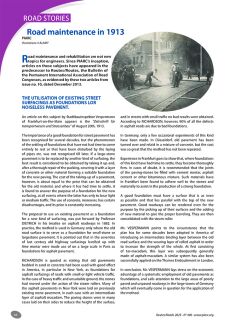
Road maintenance and rehabilitation are not new topics for engineers. Since PIARC’s inception, articles on these subjects have appeared in the predecessor to Routes/Routes, the Bulletin of the Permanent International Association of Road Congresses, as evidenced by these two articles from issue no. 10, dated December 2013.
-
The PIARC Asset Management Manual. A Guide for Practitioners
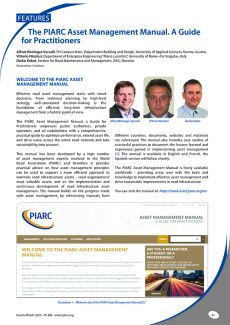
Effective road asset management starts with smart decisions. From technical planning to high-level strategy, well-structured decision-making is the foundation of efficient, long-term infrastructure management from a holistic point of view.
-
Integration of Environmental Requirements into Contractor Consultations: Exchange of Feedback between the Project Owner and Project Manager on Asset Management Operations
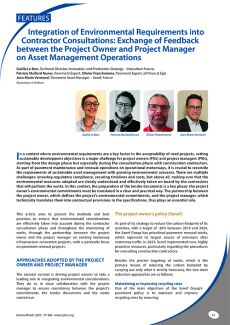
In a context where environmental requirements are a key factor in the acceptability of road projects, setting sustainable development objectives is a major challenge for project owners (POs) and project managers (PMs), starting from the design phase but especially during the consultation phase with construction contractors. As part of pavement maintenance and renewal operations on operational motorways, it is crucial to reconcile the requirements of sustainable asset management with growing environmental [...]
-
Opportunities and Developments for Improving the Ecological Footprint in the Life Cycle of Road Infrastructure Assets
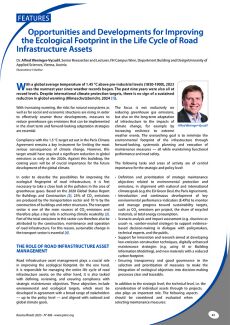
With a global average temperature of 1.45 °C above pre-industrial levels (1850-1900), 2023 was the warmest year since weather records began. The past nine years were also all at record levels. Despite international climate protection targets, there is no sign of a sustained reduction in global warming (Klimaschutzbericht, 2024).
-
Strategies for Improving the Performance of Aging Expressway Bridges
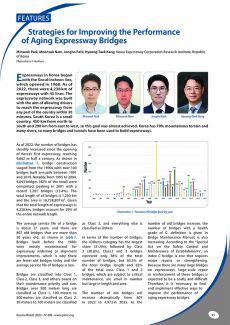
Expressways in Korea began with the Seoul-Incheon line, which opened in 1968. As of 2022, there were 4,238 km of expressways with 45 lines. The expressway network was built with the aim of allowing drivers to reach the expressway from any part of the country within 30 minutes. South Korea is a small country, 450 km from north to south and 290 km from east to west, so this goal was almost achieved. Korea has 70% mountainous terrain and many rivers, so many bridges and tunnels have been used to [...]
1 / 91
- Previous
- Next